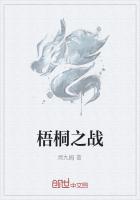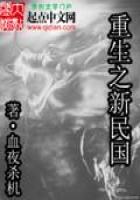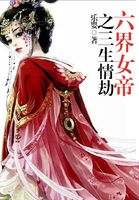The educational arrangements of the University of Paris were, to our way of thinking, somewhat incomplete. Worldly and monkish elements were presented in a curious confusion, which the youth might disentangle for himself. If he had an opportunity, on the one hand, of acquiring much hair-drawn divinity and a taste for formal disputation, he was put in the way of much gross and flaunting vice upon the other. The lecture room of a scholastic doctor was sometimes under the same roof with establishments of a very different and peculiarly unedifying order. The students had extraordinary privileges, which by all accounts they abused extraordinarily. And while some condemned themselves to an almost sepulchral regularity and seclusion, others fled the schools, swaggered in the street "with their thumbs in their girdle," passed the night in riot, and behaved themselves as the worthy forerunners of Jehan Frollo in the romance of NOTRE DAME DE PARIS. Villon tells us himself that he was among the truants, but we hardly needed his avowal. The burlesque erudition in which he sometimes indulged implies no more than the merest smattering of knowledge; whereas his acquaintance with blackguard haunts and industries could only have been acquired by early and consistent impiety and idleness. He passed his degrees, it is true; but some of us who have been to modern universities will make their own reflections on the value of the test. As for his three pupils, Colin Laurent, Girard Gossouyn, and Jehan Marceau - if they were really his pupils in any serious sense - what can we say but God help them! And sure enough, by his own description, they turned out as ragged, rowdy, and ignorant as was to be looked for from the views and manners of their rare preceptor.
At some time or other, before or during his university career, the poet was adopted by Master Guillaume de Villon, chaplain of Saint Benoit-le-Betourne near the Sorbonne. From him he borrowed the surname by which he is known to posterity. It was most likely from his house, called the PORTE ROUGE, and situated in a garden in the cloister of St.
Benoit, that Master Francis heard the bell of the Sorbonne ring out the Angelus while he was finishing his SMALL TESTAMENT at Christmastide in 1546. Towards this benefactor he usually gets credit for a respectable display of gratitude. But with his trap and pitfall style of writing, it is easy to make too sure. His sentiments are about as much to be relied on as those of a professional beggar; and in this, as in so many other matters, he comes towards us whining and piping the eye, and goes off again with a whoop and his finger to his nose. Thus, he calls Guillaume de Villon his "more than father," thanks him with a great show of sincerity for having helped him out of many scrapes, and bequeaths him his portion of renown. But the portion of renown which belonged to a young thief, distinguished (if, at the period when he wrote this legacy, he was distinguished at all) for having written some more or less obscene and scurrilous ballads, must have been little fitted to gratify the self-respect or increase the reputation of a benevolent ecclesiastic. The same remark applies to a subsequent legacy of the poet's library, with specification of one work which was plainly neither decent nor devout. We are thus left on the horns of a dilemma. If the chaplain was a godly, philanthropic personage, who had tried to graft good principles and good behaviour on this wild slip of an adopted son, these jesting legacies would obviously cut him to the heart. The position of an adopted son towards his adoptive father is one full of delicacy; where a man lends his name he looks for great consideration. And this legacy of Villon's portion of renown may be taken as the mere fling of an unregenerate scapegrace who has wit enough to recognise in his own shame the readiest weapon of offence against a prosy benefactor's feelings. The gratitude of Master Francis figures, on this reading, as a frightful MINUS quantity. If, on the other hand, those jests were given and taken in good humour, the whole relation between the pair degenerates into the unedifying complicity of a debauched old chaplain and a witty and dissolute young scholar. At this rate the house with the red door may have rung with the most mundane minstrelsy; and it may have been below its roof that Villon, through a hole in the plaster, studied, as he tells us, the leisures of a rich ecclesiastic.
It was, perhaps, of some moment in the poet's life that he should have inhabited the cloister of Saint Benoit. Three of the most remarkable among his early acquaintances are Catherine de Vausselles, for whom he entertained a short- lived affection and an enduring and most unmanly resentment;
Regnier de Montigny, a young blackguard of good birth; and Colin de Cayeux, a fellow with a marked aptitude for picking locks. Now we are on a foundation of mere conjecture, but it is at least curious to find that two of the canons of Saint Benoit answered respectively to the names of Pierre de Vaucel and Etienne de Montigny, and that there was a householder called Nicolas de Cayeux in a street - the Rue des Poirees - in the immediate neighbourhood of the cloister. M. Longnon is almost ready to identify Catherine as the niece of Pierre;
Regnier as the nephew of Etienne, and Colin as the son of Nicolas. Without going so far, it must be owned that the approximation of names is significant. As we go on to see the part played by each of these persons in the sordid melodrama of the poet's life, we shall come to regard it as even more notable. Is it not Clough who has remarked that, after all, everything lies in juxtaposition? Many a man's destiny has been settled by nothing apparently more grave than a pretty face on the opposite side of the street and a couple of bad companions round the corner.















